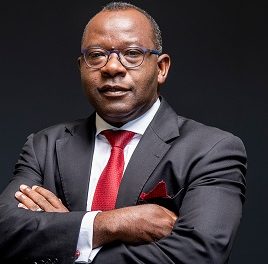
Qualifications Authority boss leaves after long, exemplary career

The long-serving Chief Executive of the Namibia Qualifications Authority, Franz Gertze is stepping down after 27 years at the helm. Leaving one year earlier than his indicated retirement, he is confident his successor will guide the institution along the same growth trajectory that he has established and nurtured.
Coming from the teaching profession where he served for ten years, Gertze said before the formal incorporation of the NQA as a state-owned agency, it was a division in the Ministry of Higher Education. At that time, he was a Chief Higher Education Officer, then promoted to Deputy Director and then to Director. It was at this point that the NQA was formed.
Since the Chief Executive of a state-owned agency is appointed for a five-year term, it means he had to apply six times to stay in the leading position for 27 years. Every time, without fail, his application was successful and he was reappointed to lead the organisation.
During his tenure, he had to reposition the NQA and create a robust system based on progress, accountability, and competence, given the delicate space the authority occupies.
“It is critical to know what you are talking about. Do not just jump into things and expect that growth will come and take place, my professional growth was somewhat unique, filled with many challenges,” he said.
But his endeavours bore fruit and over the years he scored many milestones all contributing to the high regard the NQA enjoys in higher education circles.
His first major accomplishment was to oversee the construction of the NQA headquarters in Windhoek. He also represented Namibia on several international platforms, some of which he chaired. He was an integral member of the technical team that drafted the Regulatory Framework as well as the Act.
Under his leadership, the NQA developed the National Qualifications Framework and later the National Qualifications Framework Information Management System for managing qualifications. He also contributed to the development and adoption of the National Policy on the Recognition of Prior Learning.
In 2016, he was appointed as the only African member of the Board of Directors of the International Network for Quality Assurance Agencies in Higher Education which granted Namibia direct access and influence in the global advancement of quality assurance in higher education.
“The most important thing is that many people have grown under my hand. To run an organization like the NQA or any State-Owned Enterprise, we need to know what strategic interventions are critical, what the key success indicators are. You need to know how to deal with risks, read your finances as all of this comes together, so the team you put together will help you to reach success.
“Obviously, you do not always agree, as you will always find differences, but the most critical thing is that if you build on the attitude of the people, capacitate them, skill them and [if] they are proud to identify with the brand, then you are on the winning track,” he said.
“Then came challenges beyond our control such as the Covid-19 pandemic. It derailed many of the processes that were flowing. Another challenge is that we tried to automate some of the processes but did not succeed. I hope in the next five years the NQA will be a fully automated entity. Finances were never enough. There was a time that we couldn’t appoint people because of financial constraints. So, we maintained the organisation with core staff members, and we prevailed,” he said
In the next five years, he sees a totally different NQA. Although he has built a strong foundation, he championed the development of the 2023/2024 – 2027/2028 Integrated Strategic Business Plan with the approval of the Council to ensure business continuity before his retirement.
His advice to the education sector: “Do not get tired of pursuing quality qualifications. Plan and work together, not in silos. Pursue quality at all costs.”
Finally, “I am grateful for the opportunity that I had to serve the nation for the past 27 years. When leaving after such a long time it comes with mixed feeling. You do not want to go but you must let go as change requires. I am taking fond memories along. That’s it!”















































